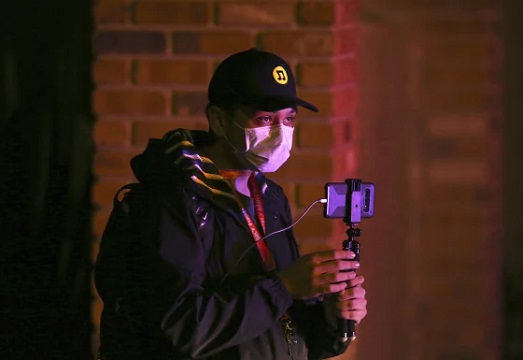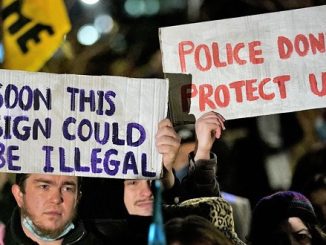
A law in the US state of Arizona will ban people from filming police officers at short distances, with possible fines or jail for those who don’t comply.
Critics call the law a threat to free speech and the right to a free press.
Police are often filmed by bystanders and footage has occasionally resulted in officer misconduct being exposed.
The law comes into effect on 24 September and will make it illegal to film police officers in the state within a distance of 8 feet (2.4m).
People who ignore a verbal warning and continue filming risk a misdemeanour charge and up to 30 days in jail.
The law, however, makes exceptions for people interacting with police, or in enclosed area on private property.
State representative John Kavanagh – who sponsored the bill – has argued it is necessary because “groups hostile to the police” sometimes “get dangerously close to potentially violent encounters”.
“Getting very close to police officers in tense situations is a dangerous practice that can end in tragedy,” he wrote in USA Today in March. “Police officers have no way of knowing whether the person approaching is an innocent bystander or an accomplice of the person they’re arresting who might assault them.”
Opponents of the law, however, say it attempts to discourage people from exercising their rights to film on public property, violating their constitutionally-protected First Amendment rights to free speech.
Additionally, the National Press Photographers Association – an industry group that includes still and TV news photographers – filed an objection to the law in February, arguing that it “runs counter to the clearly established right to photograph and record police officers performing their official duties in a public place.”.
Bystander footage of police encounters with the public has played a prominent role in the debate over police misconduct and brutality, particularly against African Americans.
Video of George Floyd’s death at the hands of Minneapolis police officer Derek Chauvin – which was taken by a 17-year-old bystander – later proved to be a key part in the case against the officer.
This week, Chauvin was sentenced to 20 years in prison for violating Mr Floyd’s civil rights. He is already serving a 22-year-state sentence for murder.
Source: bbc.co.uk






Be the first to comment